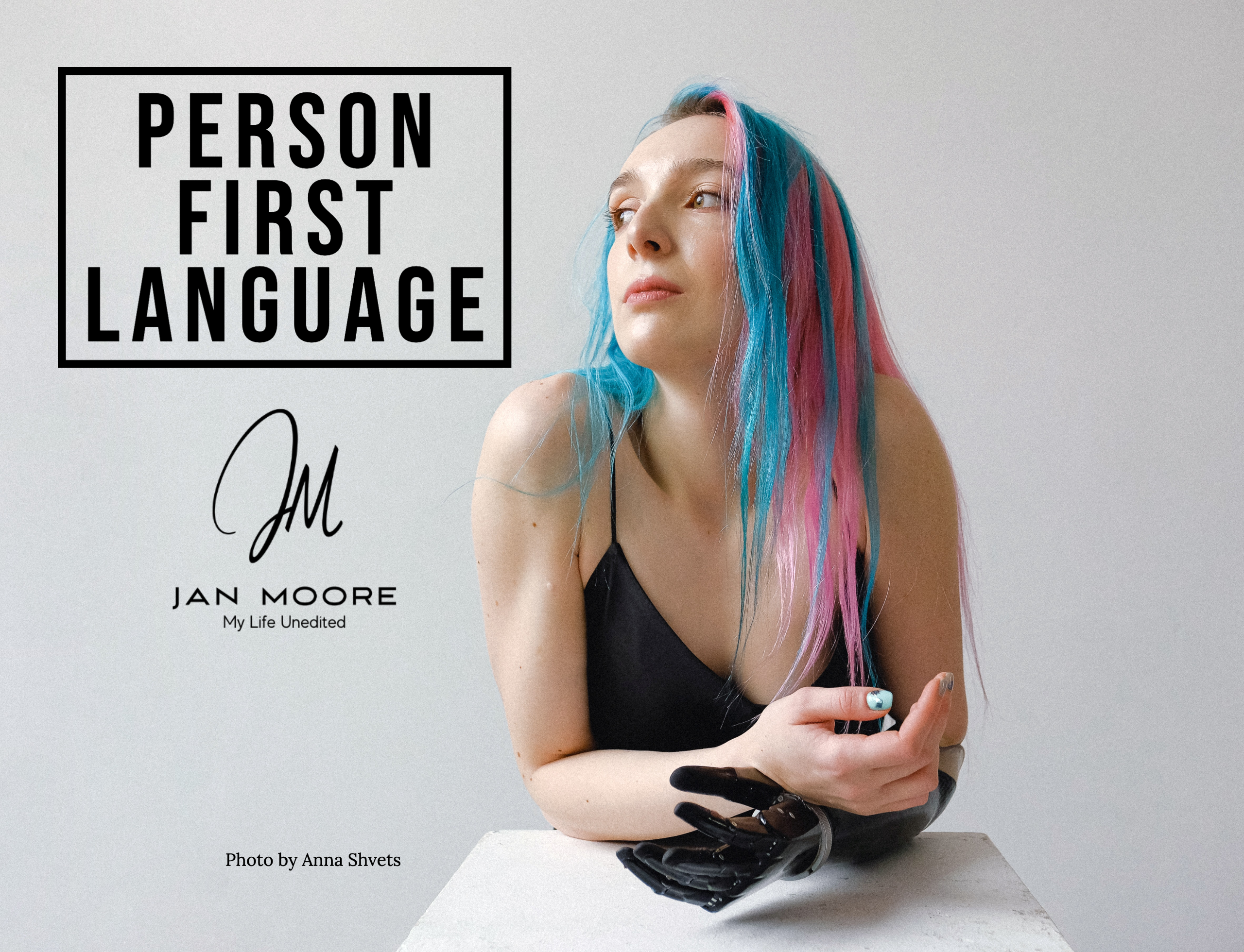
Person first language. Have you ever heard of it? It would surprise me if you did. Person first language recognizes the importance of putting a person before a disability or diagnosis. So, instead of “disabled person”, you would say “a person with a disability”. A simple shift of words yet makes a huge impact. Let’s discuss.
Why is person-first language important? It all comes down to dignity and respect. Using person-first language tells someone that they are more than their struggles. That they are, quite literally, a person first. Here are some examples of person-first language.
- Instead of “disabled veteran”, say “a veteran with disabilities”
- Instead of “addict”, say “this person has an addiction”
- Instead of “dyslexic student”, say “a student with dyslexia“
In some cases, first-person language can save lives. I know that sounds extreme but it’s true. We all know that labels can cause stigma. When you label a person as something, it can make them feel like that is what defines them. Think about a person who is struggling with alcohol abuse. The term alcoholic can make that person feel like alcohol is the number one thing that defines them. It is demeaning and shaming. And that can in turn feel like there is no way out. That same person may love to write, take long walks, and dance in the rain. Be a brilliant teacher, a parent, and a good friend. But all of that is left out when we add the label “alcoholic”.
So, person-first language goes deeper than linguistics. It is more than just a turn of a phrase. Here at Jan Moore, we speak so frequently about marginalized communities and lifting the voices of those who are being silenced. Thus, we are delighted to educate ourselves a little further and begin consciously using person-first language. Will you join us?




